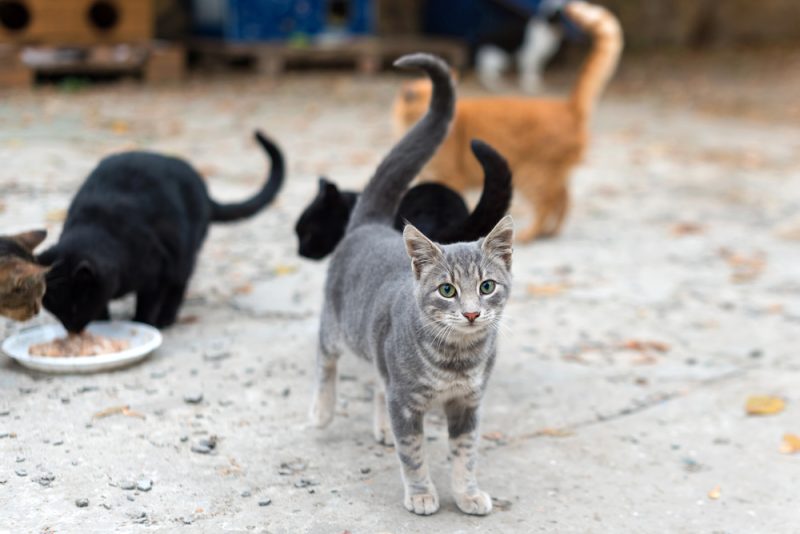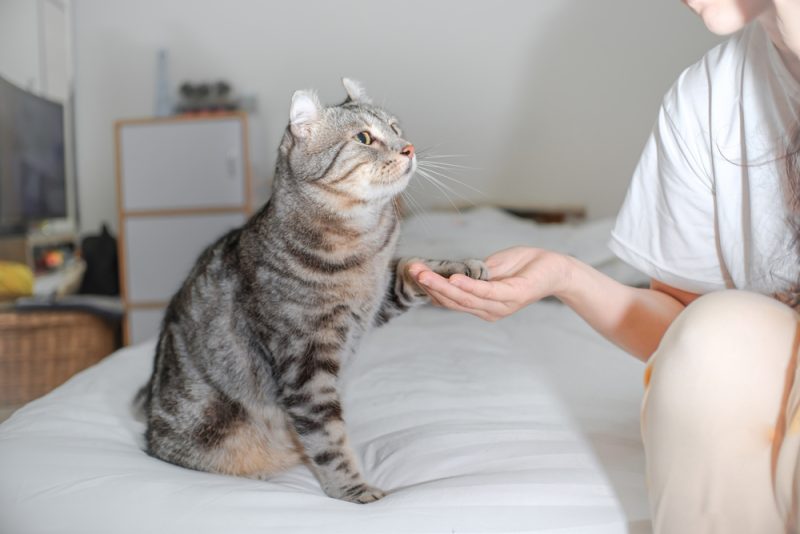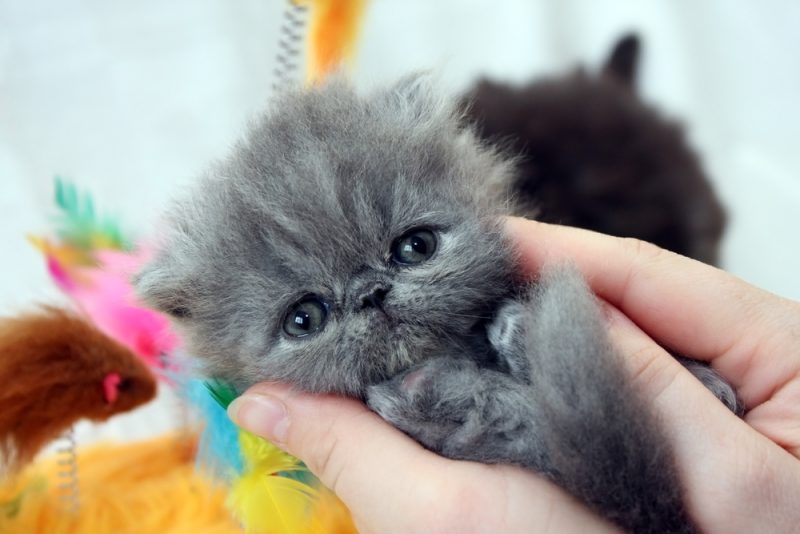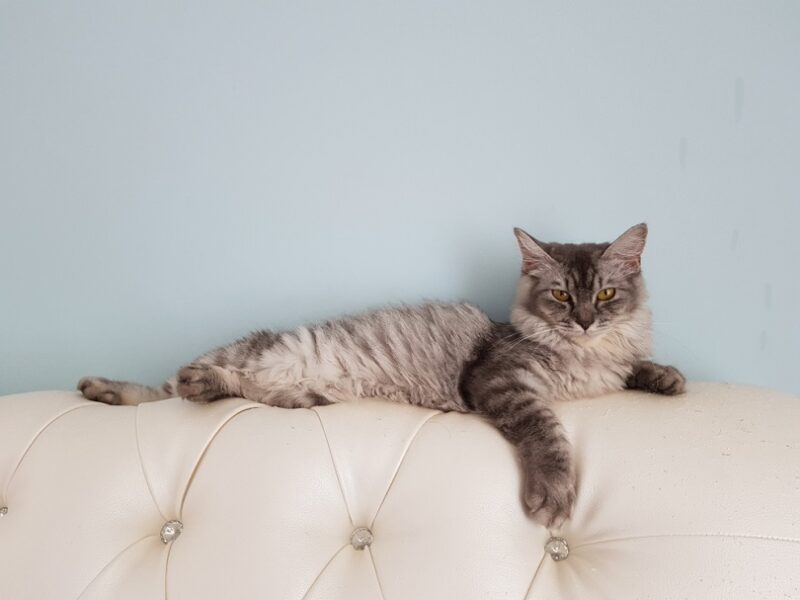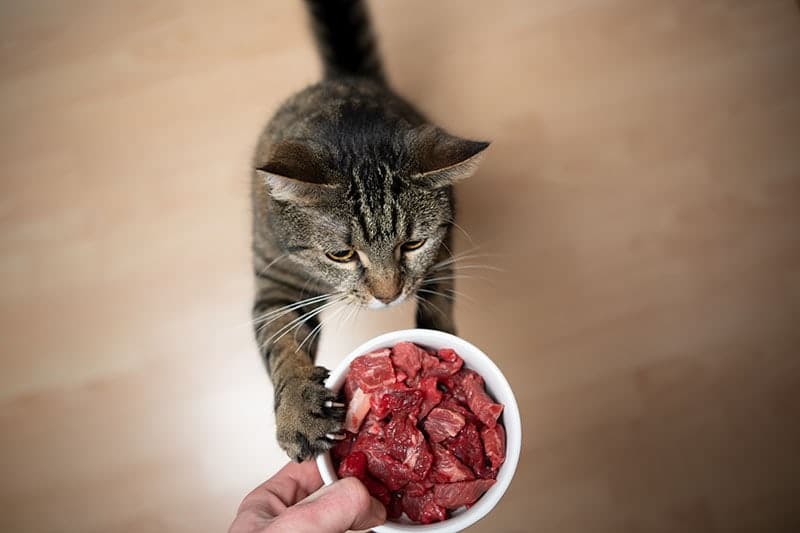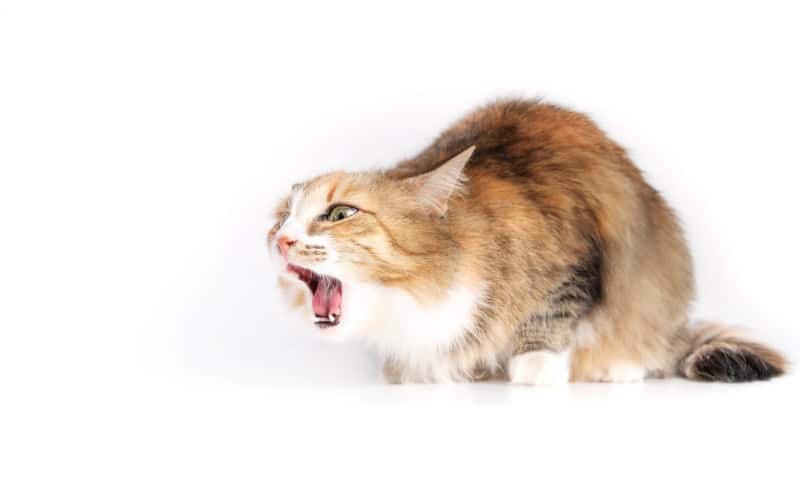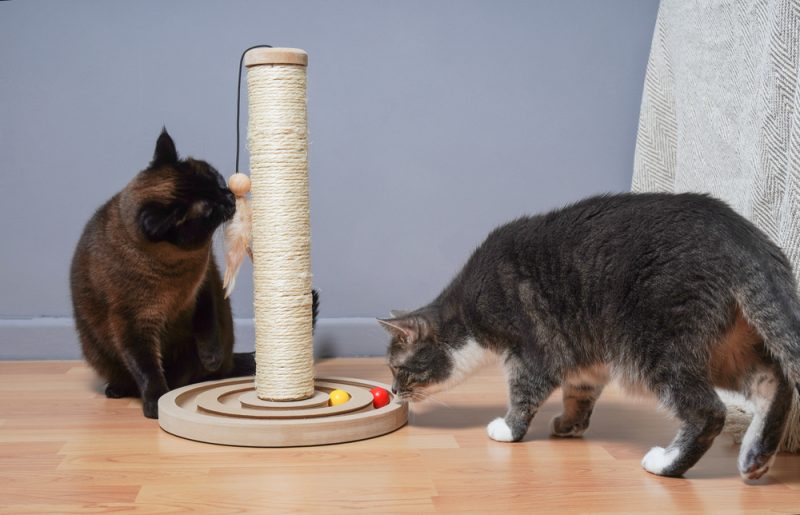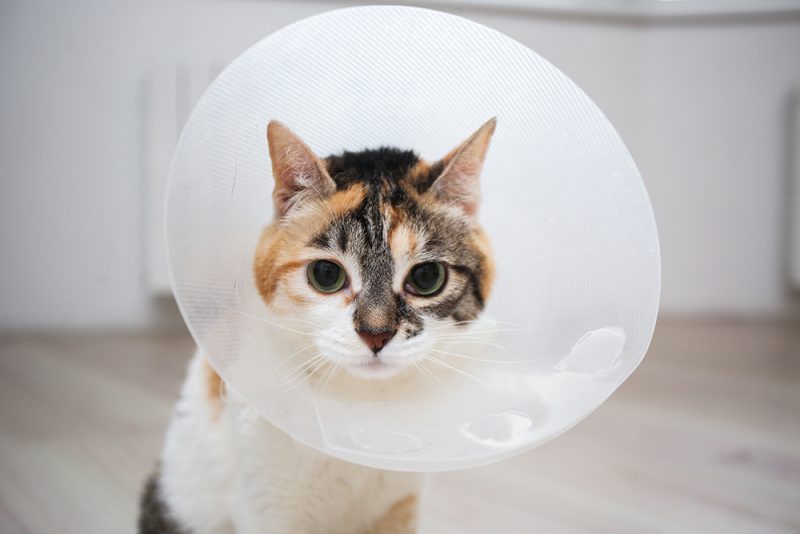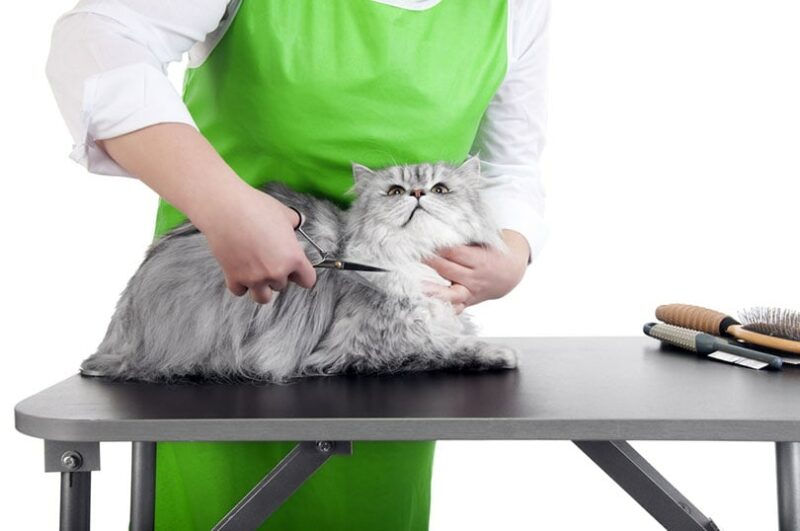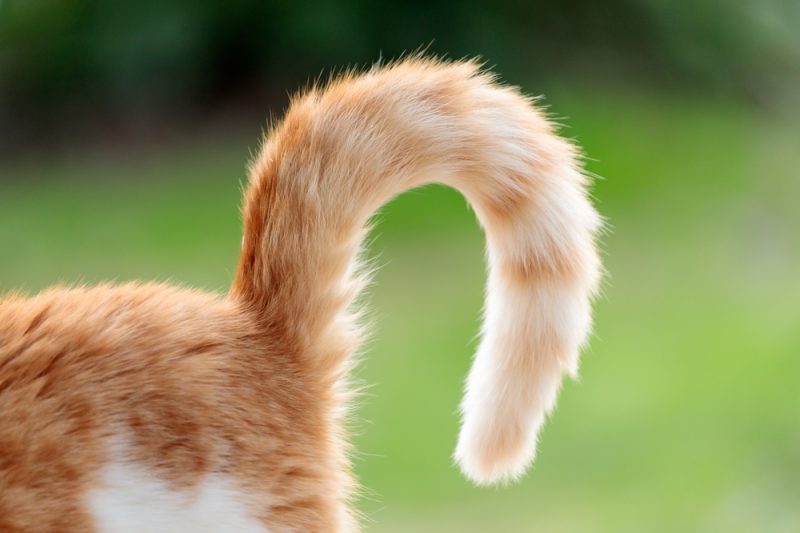In this article
Pansies are a staple for anyone who appreciates a splash of color in their garden. These colorful, diverse, easy-to-grow plants are certainly popular with those who love gardening, but what if your cat also develops a liking for them or you catch them having a cheeky nibble here and there? Luckily, pansies are not poisonous to cats, but they may cause some side effects.
In this post, we’ll explain why it’s not a good idea for cats to eat pansies, share how to keep your cats away from plants, and give you a heads up as to which plants are toxic to cats.
 Are Pansies Poisonous to Cats?
Are Pansies Poisonous to Cats?
The ASPCA says that pansies are not toxic to cats, but nevertheless, even harmless plants can sometimes cause a mild stomach upset, as is the case with any plant matter. For this reason, though eating pansies is unlikely to cause serious harm to your cat, it’s still best to keep cats away from them. Signs of an upset stomach in cats include:
- Vomiting
- Diarrhea
- Licking lips
- Loss of appetite
- Lethargy
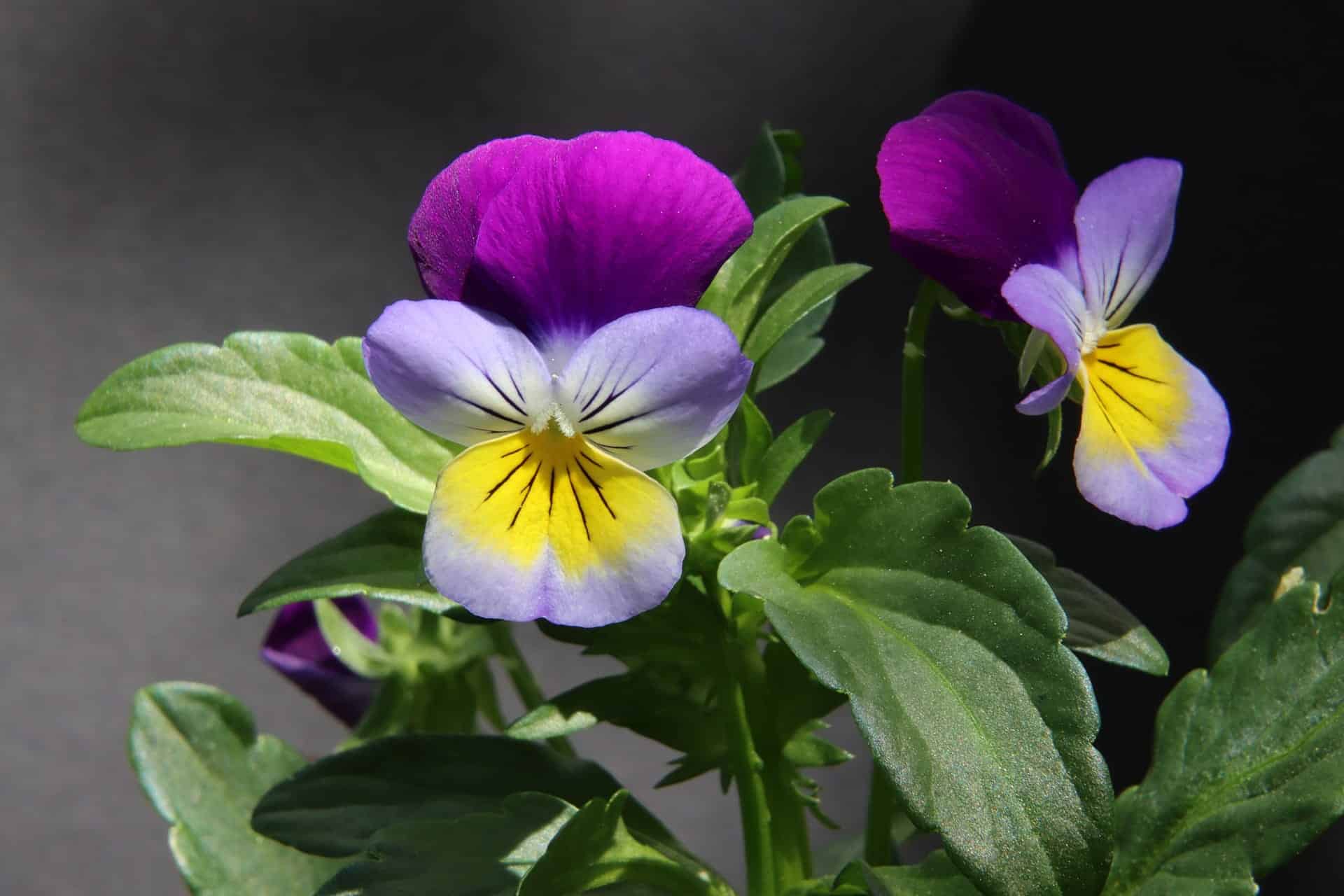
What Should I Do if My Cat Has Eaten a Pansy?
As pansies are not considered toxic to cats, the most likely possible outcomes of cats ingesting one is either that they show no signs at all and carry on all normal or suffer a mild stomach upset that clears up on its own without 24 to 48 hours.
If your cat’s signs seem more severe than those of a mild stomach bug or don’t clear up in a normal timeframe, take them to the vet to be checked out as soon as possible. In this case, we want to be sure that they haven’t ingested anything toxic, like insecticides or a poisonous plant.
Which Plants Are Toxic to Cats?
Though pansies aren’t considered toxic, some types of plants and flowers can cause some pretty serious side effects and should be kept away from cats at all costs. Some of the plants that are toxic to cats include (but are not limited to):

What Are the Symptoms of Plant Poisoning?
The signs of plant poisoning can vary in severity and depend on the type of toxin your cat has ingested. Signs include:
- Drooling and salivating
- Vomiting
- Diarrhea
- Low appetite
- Drinking more
- Inflammation of the skin, mouth, or eye area
- Itchy eyes
- Urinating more frequently
- Weakness
- Irregular heartbeat
- Slower or faster heartbeat
If you suspect that your cat has eaten a toxic plant or a part of one, you should contact your local pet poison hotline and take them to a vet. Remove the toxin from your cat if possible and keep the plant matter to show your vet if your cat has vomited it up.
If you need to speak with a vet but can't get to one, head over to PangoVet. It's an online service where you can talk to a vet online and get the advice you need for your pet — all at an affordable price!

How to Keep Cats Away From Plants
If you love having certain plants around your home or in your garden, there are steps you can take to keep your cat away from them. One of the best ways is to put the plants in an elevated spot or make use of hanging baskets.
Alternatively, you can place some orange or lemon peel in your plant pots, as citrus is a natural deterrent for cats. However, never use citrus essential oils or sprays for this purpose, as these are toxic to cats. Some sprays and repellents also use citrus oil in their formulas, so we recommend only using real orange and citrus peels to be on the safe side.
Another good way to deter cats from going near toxic plants is to place them strategically next to herb plants that they don’t like the smell of, like rosemary plants. Again, avoid using these in essential oil form, as this is risky for your cats.
 Final Thoughts
Final Thoughts
To sum up, pansies are not toxic to cats but may cause an upset stomach. Other plants commonly found in gardens and the home, however, are poisonous, so caution should be taken. If you want to keep plants or flowers that are toxic to cats, either keep them out of reach or make use of pet-safe deterrents.
Featured Image Credit: Pixabay

 Are Pansies Poisonous to Cats?
Are Pansies Poisonous to Cats? Final Thoughts
Final Thoughts


